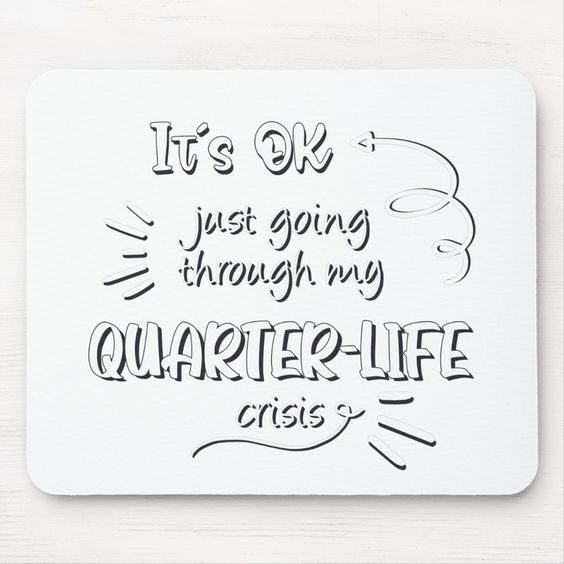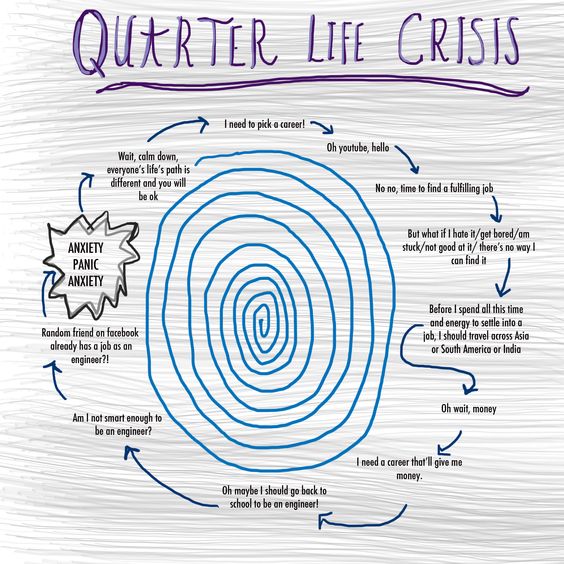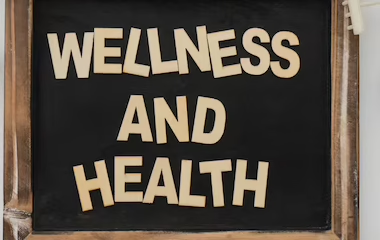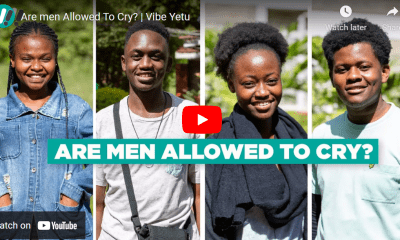Adulting 101
2024 RESOLUTIONS: ENDA OUT MORE, MEET YOUR FUTURE!
Published
2 years agoon

January for me always felt like a demo, like a taste of what the year is about. (Not that there is an option to opt out, unfortunately). It always unfolded for me as a time to set my priorities, do long-term planning for the year, and establish the impacts I hope to make. Technically making February the proper start of the year for me. January offers a unique vantage point — a pause for reflection and a space to align our desires with the year’s unfolding chapters. With January’s days gently ticking by, we find ourselves equipped with enough insight and experience to truly understand what we seek from the months ahead. It’s a period that graciously allows us to set our resolutions, not in haste, but with patience and foresight that only this time of year can bestow. As we navigate through this month, let us embrace January’s gift — the gift of time and clarity, setting the stage for a year of fulfillment and growth. Therefore, do you have your resolutions ready to tackle the year?
And yes it is important to have resolutions, doesn’t matter how serious or fun they are but having one gives you a general direction of what things you want to happen this year, a reminder to yourself of the things you are working on. So as you think about the things you want this year, we’ll give you a start, your first resolution. To Go Out more.
Your youth is a time of boundless potential, brimming with opportunities waiting to be seized. These opportunities often present themselves through new acquaintances and memorable experiences. This year, let’s commit to expanding our horizons, attending diverse events, and forging connections that could transform our world in unimaginable ways. As the saying goes, “A full life is packed with opportunities, most of which emerge from meeting people who introduce us to new worlds.” Embracing this philosophy can lead to a life rich in vibrant and unforgettable moments.
But hey, we get it! Keeping up with what’s happening in Nairobi can be a bit daunting, right? So many things all happening at the same time and it’s hard to pick the right places to be. Fret not! We’ve got a tip for you: check out “IssaPlan” on Vibeyetu’s YouTube channel. It’s the ultimate guide to all the coolest events and happenings in town, handpicked just for you. From concerts and art exhibitions to food festivals and workshops, “IssaPlan” will keep you in the loop about the hottest happenings in your area.
In an era dominated by digital screens, it’s vital to reconnect with the tangible world. Whether it’s attending a long-awaited concert, joining a local book club, or starting a random conversation in a café, these moments can be the gateway to an adventurous life filled with new friendships. Taking time off from our daily routines, like school or work, isn’t just a luxury; it’s essential for our mental health. Engaging in recreational activities acts as a stress reliever, recharging our batteries and giving us the mental strength to face life’s challenges with renewed energy. Simple acts like a day in the park or a night out with friends can significantly boost our mental well-being.
The foundation of our emotional and psychological health lies in our social relationships. These bonds offer a support system that stands firm even during hard times, providing joy, laughter and shared experiences that brighten our lives. Our friends, family, and mentors give us a sense of belonging, a safe space for confidence, and a circle of understanding that resonates with our deepest selves. These relationships enrich our lives with companionship, empathy, and connections that make our journey more meaningful. Therefore, nurturing these bonds is crucial, as they are the pillars of a fulfilling life.
Remember, a life well-lived is punctuated with laughter, discovery, and the magic of serendipitous encounters. For the latest on upcoming events, don’t forget to check out “IssaPlan” on Vibeyetu’s YouTube channel. Here’s to a year filled with unforgettable adventures and life-changing opportunities.
You may like


“Zoza”: A Story of Loyalty, Betrayal, and Redemption


Spotify Has Quietly Hiked Prices in Kenya


A Journey of Self-Discovery: Book Review of Educated by Tara Westover


Packed Fall 2024 Anime Lineup: What to Expect This Season


Infinix’s Hot Launch; The All New Hot 50 Series is Here


Walker Town Presents A Star-Studded Lineup Featuring Lauryn Hill, Nyashinski And Rema
Adulting 101
Emoji Users May Be More Emotionally Intelligent, Study Finds
Published
11 months agoon
December 15, 2024
Research reveals that individuals who frequently use emojis in their text conversations with friends and family tend to have a higher level of emotional intelligence.

These expressive icons may be more than just playful additions to messages—they can reflect a deeper connection with one’s feelings.
The study, conducted in the U.S., surveyed 320 participants about their backgrounds and messaging habits. Findings indicated that those confident in using emojis demonstrated a strong capacity for understanding and managing emotions. Interestingly, while women were more likely to use emojis, individuals who identified as anxious or private were less comfortable incorporating them into their communication.
Dr. Simon Dubé, a psychologist from the Kinsey Institute at Indiana University, emphasized the significance of these digital tools in modern communication. “The way we interact during virtual conversations reveals more about ourselves than we might think,” he explained. “Emojis are not just smiley faces or heart icons—they are tools for conveying meaning and enhancing communication.”
According to Dr. Dubé, emojis play a vital role in bridging the gap created by the lack of non-verbal cues in virtual exchanges. “They meet the need for non-verbal support, helping to reduce uncertainty, adjust the tone, or increase the clarity of a message,” he noted.
This research highlights the evolving ways we adapt to digital communication, suggesting that emojis are more than simple decorations—they’re essential tools for emotional expression and connection in a text-driven world.

Do you feel like life’s throwing you one too many curveballs lately? Welcome to your quarter-life crisis—well, I wouldn’t call it that, more like a plot twist!

If you’re in your 20s or early 30s, chances are you’ve felt that unsettling mix of confusion, anxiety, and “What am I even doing with my life?” vibe. But hey, it’s not as grim as it seems. This phase, though overwhelming, is more of a growth spurt for your mind and soul.
Here’s How to Navigate this Rollercoaster with Style
1. Embrace the Chaos, Don’t Fight It
First off, let’s normalize the chaos. Life’s not a straight path, and the sooner you accept the zig-zags, the smoother your ride will be. Remember, everyone’s story is different, so don’t compare your journey to someone else’s Instagram highlight reel.
This period of uncertainty? It’s just the universe’s way of nudging you towards something bigger and better.
2. Reflect and Redirect
Feeling lost? That’s your cue to pause and reflect. Ask yourself the deep questions: What do I really want? What makes me happy? It’s okay if you don’t have all the answers right away.
Start small—maybe it’s time to pivot in your career, explore a new hobby, or even take a solo trip to clear your mind.
The goal is to redirect your energy towards what genuinely matters to you.
3. Surround Yourself with Positivity

Your vibe attracts your tribe, so keep it positive. Hang out with people who uplift you, not those who drain your energy. And don’t forget to celebrate the small wins—whether it’s finally nailing that work project or just getting out of bed when you didn’t feel like it. Positivity breeds more positivity, and that’s what you need right now.
4. Trust the Process
Trust me, everything you’re going through is preparing you for something amazing. You might not see it now, but hindsight’s 20/20, right? So, trust the process and keep moving forward, even if it’s just one baby step at a time. Your plot twist? It’s leading to a grand finale that’ll be worth the wait.
A quarter-life crisis isn’t the end of the world; it’s just a chapter in your story. Embrace the uncertainties, learn from them, and use this time to craft a life that’s true to who you are. After all, you’re the author of your own story and this plot twist? It’s just the beginning of something epic.

Adulting 101
Career Hopping: The Emotional Cost of Constant Reinvention
Published
1 year agoon
August 14, 2024
Remember the days when people would stick to one job for life? Yeah, that’s a distant memory for most of us. These days, switching careers every few years seems to be the norm, especially among millennials and Gen Z. It’s exciting, keeps things fresh, and opens up new opportunities. But beneath the surface, career hopping can take an emotional toll that’s often overlooked.
So, what’s the real cost of constantly reinventing ourselves in the professional world. Let’s face it—career hopping is both thrilling and terrifying. On one hand, it’s all about exploring new opportunities, challenging yourself, and refusing to settle for anything less than what you deserve. On the other hand, it’s a rollercoaster of uncertainty, where each leap into the unknown comes with its own set of risks and emotional challenges.
One of the biggest pressures driving career hopping is the fear of missing out (FOMO). We’re bombarded with success stories on social media—people landing dream jobs, starting businesses, and seemingly living their best lives. It’s hard not to compare yourself and wonder if you’re falling behind. This can push us to jump from one job to another, always in search of the next big thing, but never truly settling into a role.
But here’s the thing: constantly changing jobs can be exhausting. Each new position comes with a learning curve—new skills to master, new colleagues to understand, and a new work culture to adapt to. It’s a lot to take on, and the stress can quickly add up. The excitement of a fresh start can be overshadowed by the anxiety of having to prove yourself all over again.Moreover, there’s the emotional impact of leaving behind teams and projects that you’ve invested in. It’s not just about the work; it’s about the relationships you build along the way. Saying goodbye to colleagues who’ve become friends can be tough, and starting over in a new environment can feel lonely at times.So, how can we navigate the ups and downs of career hopping without losing ourselves in the process? Here are some tips:
– Reflect on Your Goals: Before making a move, take some time to reflect on your long-term career goals. What do you really want to achieve? Will this new role bring you closer to that goal, or are you just chasing the next shiny thing?
– Embrace Lifelong Learning: Instead of hopping from one job to another, consider ways to grow within your current role. Lifelong learning—whether through courses, certifications, or new projects—can help you stay challenged and fulfilled without the need to constantly change jobs.
– Build a Support System: Career hopping can be emotionally draining, so it’s important to have a support system in place. Whether it’s friends, family, or mentors, having people to talk to about your experiences can make a huge difference.
– Prioritize Mental Health: Don’t forget to take care of your mental health. The stress of career changes can take a toll, so make sure you’re practicing self-care, whether that’s through meditation, exercise, or simply taking time to relax.In the end, career hopping isn’t inherently good or bad—it’s about how you approach it.
By being mindful of the emotional impact and making decisions that align with your long-term goals, you can enjoy the benefits of career hopping without burning out. After all, the journey is just as important as the destination.

Meghan Markle Delays Netflix Series Premiere Due To LA Wildfires

Satire Meets Culture On New Comedy Series ‘A Very Kenyan Sketch Show’

Netflix Set To Debut A Gripping Kenyan Drama Series ‘Mo-Faya’
Trending

 Adulting 1013 years ago
Adulting 1013 years agoPersonal Brand Online (Part 2)

 A Chat With3 years ago
A Chat With3 years agoA chat with DJ Elye (the sunday skool drop out)

 Adulting 1013 years ago
Adulting 1013 years agoPersonal Branding (Part 1)

 A Chat With4 years ago
A Chat With4 years agoA MOMENT WITH SHARON WENDO, FOUNDER OF EPICA JEWELLERY

 Health1 year ago
Health1 year agoLet’s Get Mind, Body and Spirit Aligned!

 Entertainment3 years ago
Entertainment3 years agoKenyan Movie Disconnect: The Wedding Planner Is Now Streaming On Netflix

 A Chat With3 years ago
A Chat With3 years agoFind out why ‘mutura is not a street food’ as Wanjira Puts it!

 A Chat With3 years ago
A Chat With3 years agoAre men allowed to cry?
































